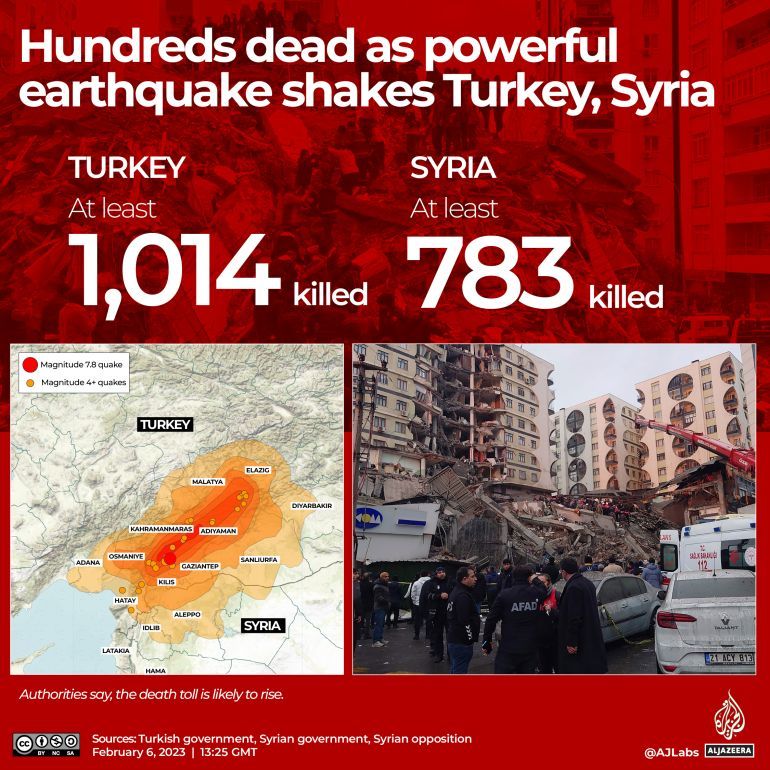
For Syrians, earthquakes bring on yet another disaster
Powerful quakes have left devastation in the war-hit country, exacerbating crises faced by internally displaced people and refugees.
It is the latest disaster for a people who have already suffered much.
The images of Syrians, young and old, helplessly being pulled out from under the rubble have sadly become a common sight over the nearly 12 years of war in Syria, particularly in the opposition-held northwest of the country.
But this time it was not air raids or shelling, but a natural phenomenon that was responsible.
The pain and suffering have been no less real.
Hundreds of people have already been confirmed dead as a result of Monday’s earthquakes across northern Syria, in both government-held and opposition-controlled areas – and the number is only expected to rise.
“Millions have already been forced to flee by war in the wider region and now many more will be displaced by disaster,” the Norwegian Refugee Council said in a statement. “In the midst of a winter storm and an unprecedented cost-of-living crisis, it is vital that Syrians are not left to face the aftermath on their own.”
But Syrians have often been left on their own, with international attention on the long-running conflict and the plight of the Syrian people decreasing.
Even the mandate for aid to get into opposition-held areas of Syria from the United Nations has to be renewed every six months, leaving locals feeling a sense of constant uncertainty as to whether they will get the assistance they need to survive.
They now sit devastated, the temporary structures erected to house the tens of thousands of people who have sought refuge there proving to be unstable and no match for such powerful tremors.
The poor infrastructure in the region had already contributed to the spread of diseases such as cholera. Much of it had been hit by the government of Syrian President Bashar al-Assad and his ally, Russia. Some had been rebuilt, much had not.
The Syrians who have been able to get across the border into southern Turkey in the past decade or so have not been able to escape the devastation – the epicentre of the original earthquake was itself in the region.
Anyone who has been to the cities in that region of Turkey – Gaziantep, Kahramanmaras, Antakya, Sanliurfa, Kilis – will tell you that they have become a home away from home for Syrians.
Now, families who survived the war in their own country, and the uncertainty of life as refugees, have cruelly lost their homes, or their lives.
And in the depths of winter, on both sides of the border, Syrians and Turks alike find themselves having to deal with the pain of losing loved ones, and uncertainty over what the future may bring.











